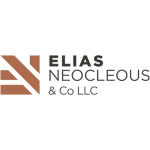In the past two years or so Cyprus has undergone a change of narrative that has seen it being rebranded as a European tech centre attracting a multitude of tech companies from all over the globe. The country is now commonly referred to as the ‘Tech Island’ and has seen waves of entrepreneurs come to its shores to partake in the action.
This newfound hustle and energy has created fertile grounds for intuitive similar-minded tech community individuals to seek to create their start-ups in Cyprus, which has, in turn, attracted the attention of investors as they aim to capitalise on this growing industry.
As the Cyprus start-up ecosystem continues to grow and foster a budding funding landscape, it is important for entrepreneurs to become acquainted with the legal considerations involved. Funding is the lifeblood of the start-up world and correct capitalisation is vital for the successful running of a business. Founders must therefore be able to interact with investors, and depending on the company’s timeline, there are a variety of legal tools and arrangements for them to take into account.
Funding methods
At the seed stage, SAFE notes (simple agreement for future equity) and convertible notes are an excellent way for founders to obtain funding for their company at a time when agreeing on a valuation tends to be very difficult.
These documents essentially push back the valuation period by allowing money to be raised on the promise of future equity. When the company has sufficiently grown and more data is available to obtain a ‘price per share’, the SAFE and convertible notes put in place will convert into the applicable number of shares, subject to conditions.
The main difference between a SAFE note and a convertible note is that a SAFE note allows investors to buy shares in a company as part of a future equity round, while a convertible note is a type of short-term debt that converts into equity or is paid back. A convertible note is generally more complicated due to the involvement of additional parameters such as interest rates and maturity rates.
When the company has laid its foundations and the business is operating, further funding through a Series A, B or C round may be required. At this stage, one of the key issues founders need to reconsider is the company’s corporate governance, which will be critical when requesting further funding to grow the company. Corporate governance is especially important in the early stages to protect founders not only from investors but also from their own co-founders.
Founders need to have specific long-term plans regarding key terms before seeking investment if they want to retain control over their start-up and avoid any internal strife. The consequences of ceding too much control too early may be acute, as it reduces the possibility of being able to attract further financing while retaining majority ownership of the company.
There are various legal arrangements that can be put in place for the issuance of shares and the onboarding of investors, but the most common documents are the term sheet and the share subscription and shareholders agreement.
The term sheet is the initial document outlining the material terms and conditions for the establishment of a potential business agreement.
The share subscription and shareholders agreement is a binding document that sets out the rights and obligations of the shareholders in relation to each other and the company.
Terms and conditions
Some of the key terms and provisions that need to be carefully considered and drafted are set out below. It is important to note that this is not an exhaustive list. There are many other issues involved, some of which may be unique to a specific case. Therefore, it is recommended that a lawyer be consulted when drawing up such documents.
The vesting of founder shares is one of the most critical considerations for start-ups and it is often a key component in an investor’s deliberation when deciding whether to invest.
Founder vesting, at a basic level, is the process that dictates how a founder or employee earns their stock over time. Typically, this will depend on factors such as performance and commitment to the company.
A vesting schedule is important for keeping founders and highly skilled employees from leaving the company too early. It is common for shares not to vest in the first 12 months to ensure that founders stay for at least a year. Vesting provisions can get complicated very quickly as investors and founders seek to balance their interests. They can often involve the addition of a variety of clauses, such as accelerated vesting, right of first refusal or super-voting rights.
Another crucial provision, which is usually non-negotiable with investors, is a drag-along right. A drag-along right permits the majority shareholder, or group of shareholders, to essentially force the minority shareholders to sell their shares in the company. Such rights can be used by the investors (for example, a capital venture firm) to force the minority shareholders to sell their interest in the company if an attractive buyer presents itself or vice versa.
Founders may therefore wish to negotiate certain structural protections to limit an investor’s influence. This might be achieved, for example, by requiring a two-thirds majority instead of a simple majority on specified votes, the creation of reserved rights for a certain class of shareholders or even, perhaps, by providing for a timing clause, whereby the drag-along rights may only be used after a certain period has elapsed. These are key rights that founders will need to familiarise themselves with as they are certain to be included in early-stage funding negotiations. Drag-along rights should, however, be distinguished from tag-along rights, which offer the minority shareholders the option to sell but do not mandate that they do so.
In addition to the considerations mentioned above, founders must take care to understand the limitations, warranties, covenants, and representations involved in the process of a sale of shares. For example, it is important that founders carefully understand if they are severally liable or jointly liable. Moreover, it is important to have very clear dispute resolution methods put in place, which should include a specific dividend distribution policy.
The importance of legal understanding
Once the founders have fully reflected and understood the legal issues involved, they will be able to better protect their company and cooperate with investors. This will help to facilitate the funding process and ensure that the business receives adequate liquidity.
Founders may even choose, or consider applying for, funding from among a host of new incubators, venture capital firms and funds that have set up or have relocated to Cyprus or can even take part in the promotion of their start-up through promotion agreements with strategic partners. It is important to note, however, that money is largely mobile and funding can take place from anywhere in the world.
Start-ups are therefore not restricted to raising capital in Cyprus, which, though progressing well, needs to further develop its funding market before it can rival the more traditional financial capitals. Nevertheless, funding from overseas is an important aspect of financing that is simplified by the fact that Cyprus is a common law jurisdiction, a factor well understood by commercial parties.
To learn more about a tech-start-up’s journey in Cyprus, you can also watch Elias Neocleous & Co’s panellist discussion at the Reflect Festival 2022.


